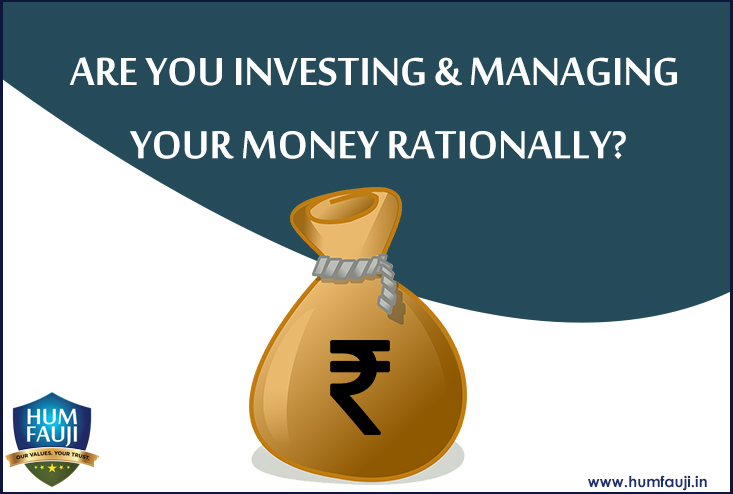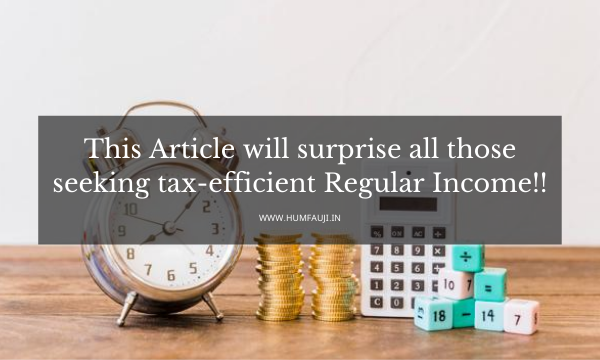Whenever any retiring officer approaches us for advice, invariably the question of whether or not to commute the pension comes up. This article deals with this issue so that all officers, retired or retiring, would be able to make up their mind more knowledgeably.
Before we take a call on the same, a few connected issues need to be understood clearly:-
- Basic Pension is exactly half of your last drawn Basic Salary. And Basic Salary is Basic + Grade Pay + Rank Pay.
- Whenever commutation is done, only the Basic Pension gets commuted, never the DA received. Thus, after commutation also, the DA is received on full value of Basic Pension.
- Commutation can be done of any value from 0% to 50%. However, generally almost all the officers get 50% commutation done, if they go in for it.
- Commutation is done based on a factor of commutation set by the Government which depends on the years of service that you’ve put in. To put it more simply, it is the time adjusted Present Value of your future pension.
- Pension is restored exactly 15 years after first commuted pension is received by you.
- Though not confirmed, probably commutation can still be done within one year of retirement, if the officer has not done commutation and wishes to change his decision.
Now, let us understand the difference between a commuted pension and an uncommuted pension. We’ll understand it by an example.
Case Study
The officer is a Col who has Rs 60,000 of Basic Pay, 8700 of Grade Pay and 6000 of Rank Pay, making it a total of Rs 74,700 of Basic Pay while serving. He will commute 50% of his pension, if he does so. He is in a dilemma what to do. A commutation factor of 8.08 is applicable to him. The DA is 119% at present.
His Basic Pension is = Rs 74,700 / 2 = Rs 37,350.
If he does not commute the pension:-
Monthly Pension received by him = Rs 37,350 + (119% of 37,350) = Rs 81,800.
If he commutes the pension:
Monthly Pension received by him = Rs 18,675 (ie, 37,350/2) + 44,446 (ie, 119% of 37,350) = Rs 63,121.
In addition, he will receive, a bulk commuted pension amount of Rs 19.9 Lakhs (ie, 18,675 X 12 months X 8.88 factor).
Analysis of Commutation Vs Non-commutation:
If you see the calculations above, the difference between commuted and non-commuted monthly pension is about Rs 18,680, which is not much of an additional amount to be received every month. And, he also gets a big sum of Rs 19.9 Lakhs in bulk. He would be able to generate long term returns of anything from 6% – 12% per annum net of tax, depending on where he invests his commuted amount. If he takes up re-employment or corporate job after retirement, for a few years, this small additional monthly amount will anyway not matter much to him. Thus, commutation seems better than on-commutation due to following three reasons:-
- Difference between 50% commuted (maximum allowed) and uncommuted pension is not much on a per month basis. As such, for this officer and his wife, living in their own house, Rs 63,000 per month of commuted pension is normally quite adequate.
- The bulk amount is quite large. Apart from providing a big financial security, it can be prudently invested to generate the gap amount (between commuted and uncommuted monthly pension) while still retaining the bulk money with you in your kitty.
- In case something untoward happens to the officer, the Government pays the same pension to the family of commuted and uncommuted cases, thus effectively ‘forgetting’ the commuted pension bulk amount given to the officer. This is a large welfare measure by the Govt.
If the Officer retires after 01 Jan 2016, ie 7th CPC applicable to him:
It is assumed that the 7th pay commission will increase his serving basic pay by 20%. Thus his serving Basic Pay will be Rs 89,640 and hence, Pension Basic Rs 44,820.
If he does not commute the pension, he gets a Pension of Rs 98,156.
If he commutes pension by 50%, his pension will be Rs 75,746. And he gets a commuted amount of Rs 23.88 Lakhs.
Again, even after pay commission effect, the gap between maximum commuted and non-commuted pension is only Rs 22,410 while the officer gets Rs 23.88 Lakhs as bulk if he commutes by 50%.
Our Recommendations
We strongly recommend that all officers should commute their pension to the maximum allowed 50%. If the officers are also able to invest their commuted pension bulk amount wisely and carefully, there is not likely to be any difference (or a minor difference) in their take-home pension even after commutation while still having this large commuted amount with them.
For more information, feel free to reach us on, contactus@humfauji.in or call + 011 – 4240 2032, 40545977, 49036836














Comments (21)
A well written article but the examples are missing.
Thanks Anil.
We will keep note of that and explore it further. For any specific queries, feel free to get in touch with us on contactus@humfauji.in
I am retiring at 50yrs.If I commut pension till when I would have to pay 50% pension?
Commutation of pension is for 15 years irrespective of when you retire.
Very informative sir. Simple and clear
Thank you.
Sir,
The article does not address officers retiring with a disability pension , which is fully tax exempted.
Also please throw some light on investment options which can generate a 12 % return as mentioned.
When one has disability pension, the only thing that changes is that the pension (service element plus the disability element) is not taxable. However, everything else is the same. The major point to be kept in mind is whether you need more monthly income (ie, less of commutation) after your retirement or more bulk (ie, more commutation) when you retire. Former could be due to dependent children and/or parents or other personal requirements and latter could be due to requirements due to children (education, marriages etc), house requirements, need or desire to travel extensively, etc.
An armed forces officer gets about Rs 60,000 of pension and about Rs 53 Lakhs of commuted bulk amount on superannuation if he takes 50% commutation. If no commutation is done, these figures would be about Rs 1.1 Lakh of pension and Nil commuted bulk amount. For commutation of anything from 10% – 40%, the corresponding figures would be in-between.
Hence, please decide on what is your priority and take action accordingly.
Based on our experience, we can say that an officer and his wife, living in their own house (and hence, no rental outgo) with minimal expenses of children and parents etc, generally require about Rs 55-60,000 per month for a fairly good living in a metro city.
It is understandable that the recovery of communication is done with certain amount of interest levied by the govt.please intimate approx rates of interest levied on the individual for communication of pension as the recovery period is 15 years.
The commutation factor of 8.08 implies that what the government gives you is an 8 years of amount while the pension is restored after 15 years. This is where the limitation is. Moreover, there has to be a clarity on whether the commuted amount will attract taxation and is the pension also taxable. If the answer to above questions is in affirmative, then it makes sense in not commuting.
Govt pays in above case for 8.8 years and recovers for 15 years. you are paying back a lot
Dear Sir,
Commutation needs to be treated as a loan given by the Govt to you. You get a bulk amount today (commuted amount in bulk) and need to pay and EMI (cut in pension as per the percentage of pension commuted). Obviously, when you take a loan, you need to pay a rate of interest. If you take a loan of Rs 1 Lakh from SBI today @ 8.5% rate of interest, along with the interest, you pay back Rs 1.77 Lakhs over 15 years. So, like with any loan, you have a choice – do you like the terms and conditions of the loan? If yes go ahead, if not, don’t go ahead or take a lesser loan.
By the way, the rate of interest of this Govt loan (aka Commutation) works out much lesser than the open market loans that we all take for various purposes.
I wrote a letter and posted it to PCDA(Allahabad), about this that i dont want the complete pension, and i want the commute, but now i received my PPO, in which i am getting the complete pension, and no commute is calculated.
what should i do in this case?
Dear Sidhant,
Obviously PCDA (Allahabad) hasn’t received your letter. You need to pursue it. Please note that the PPO will need to be amended now which, of course, is not as tedious as it sounds.
DEAR SIR,
IN THE FIRST EXAMPLE THE BASIC PAY WAS LESS WITH DA AS 119%. THEREFORE COMMUTATION DOESNT LEAD TO LARGE DIFFERENCE IN PENSION AMOUNT.PRESENTLY MY BASIC PAY IS 231400 AND PENSION BASIC IS 115700. TAKING 50% COMMUTATION WOULD REDUCE MY PENSION TO 57850+DA.SINCE PRESENT DA % IS LOW,I WOULD HAVE A DIFFERENCE OF RS 57850 BETWEEN COMMUTED AND NON COMMUTED PENSION.PSE COMMENT
Absolutely agreed. But then the commuted amount that you would get would also be about 52-53 Lakhs! It is your choice whether you want more monthly amount or bulk. Please also see my comments reproduced below which were given by me on an email group to a similar query:-
I would reiterate a few points here:-
‘Always Commute’ may not be the right strategy. It should be entirely based on what are your future needs – do you need bulk more or monthly cash flows more. Routinely, we recommend at least 3-5 officers every month not to commute because they have already taken care of all their requirements and liabilities, and now only have to ensure that they have a fulfilling and carefree golden retirement.
Similarly, just because one has tax-free pension (due to disability pension or a gallantry award) does not mean you should not commute.
Commutation is not merely maths on an excel sheet. It is also psychological comfort level. Three distinct benefits of commutation:-
If you invest the commuted amount sensibly, it is possible to earn up to about 60-65% of the forgone pension while still having the bulk amount in hand.
And if this monthly income earned is through mutual fund investing, the tax on it will be about 25% of what you would pay if you had not commuted and got pension instead.
Pension is fully taxable while commuted pension bulk is fully tax-free.
If something happens to the officer, the family gets the same pension irrespective of commutation. In effect, the pension received is higher than what was being received while the officer was alive (due to commutation)!
Please remember that the DA is never commuted. Hence as the DA rises and pay commissions come in, the commuted amount becomes insignificant part of the overall pension. My own case – when I took my PMR in 2010, with 50% commutation, my commuted monthly amount was Rs 15,805. This commuted amount, which of course remains the same all the 15 years, is a very small part of my pension just 8 years later now and I don’t even feel its deduction. And the bulk amount helped me do a lot of things over the years including setting up my company and sending my children abroad for education.
THANK YOU SIR FOR YOUR ELABORATE EXPLANATION
However for this 53 lakhs in bulk, the govt over fifteen years recovers 90 lakhs.. almost double.
Sir, pls write an article about commute for PBOR .Most of PBOR think that it is like a loan approx 7.25%.What should we do the bulk amount invest in mutual fund lump sum through STP or non commute pensioner do SIP, what is best option? Pls write elaborate.
Dear Dipak
Whether Officers or PBOR, the rules and basic tenets of commutation, financial planning and investments remain the very same. There is just no difference. I would reiterate a few points here:-
1. ‘Always Commute’ may not be the right strategy. It should be entirely based on what are your future needs – do you need bulk more or monthly cash flows more. Routinely, we recommend at least 3-5 officers every month not to commute because they have already taken care of all their requirements and liabilities, and now only have to ensure that they have a fulfilling and carefree golden retirement.
2. Similarly, just because one has tax-free pension (due to disability pension or a gallantry award) does not mean you should not commute.
3. Commutation is not merely maths on an excel sheet. It is also psychological comfort level. Three distinct benefits of commutation:-
o If you invest the commuted amount sensibly, it is possible to earn up to about 60-65% of the forgone pension while still having the bulk amount in hand. And if this monthly income earned is through mutual fund investing, the tax on it will be about 25% of what you would pay if you had not commuted and got pension instead.
o Pension is fully taxable while commuted pension bulk is fully tax-free.
o If something happens to the officer, the family gets the same pension irrespective of commutation. In effect, the pension received may be higher than what was being received while the officer was alive (due to commutation)!
4. Please remember that the DA is never commuted. Hence as the DA rises and pay commissions come in, the commuted amount becomes insignificant part of the overall pension. My own case – when I took my PMR in 2010, with 50% commutation, my commuted monthly amount was Rs 15,805. This commuted amount, which of course remains the same all the 15 years, is a very small part of my pension just 9 years later now and I don’t feel its deduction even a wee bit. And the bulk amount helped me do a lot of things over the years including setting up my company and sending my children abroad for education.
So please take your call considering the above points as applicable in your life and not because somebody else commuted or not commuted.
Sir, commuted money invest in mutual fund through STP is best or Non commute money ( halp of basic pension monthly) invest in MF through SIP is best? Time horizon 15 year. 1150000 is my commute money. 10500 per month EMI